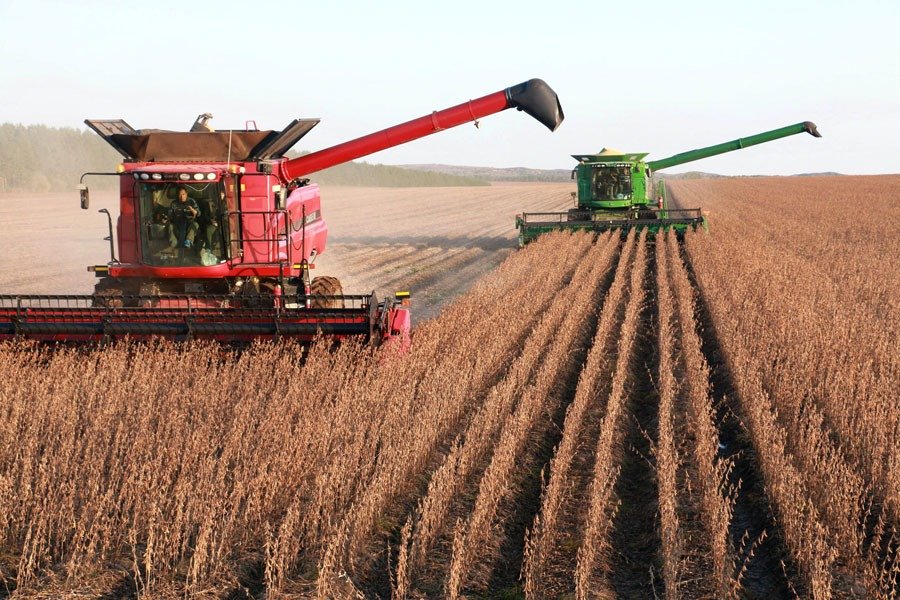Accompanying Brazilian President Luiz Inacio Lula da Silva during his recent visit to China was an important delegation representing Brazil”s agricultural sector. This large agribusiness presence was not surprising.
China is the world’s largest importer of food, and Brazil is its main supplier, accounting for 25 percent of all agricultural products the country imports.
While China leads in food imports, it is also a major producer of grains, especially wheat, corn and rice. Due to limitations in availability of arable land and water, China produces relatively less amount of soy, thus relying heavily on imports.
Brazil has become a strategic partner in this context, with soybean accounting for more than 60 percent of the country’s agribusiness exports to China.
Other major exports include meat and cellulose, while corn is gaining ground. Sorghum and pulses such as beans and sesame also show strong potential.
The agribusiness ties are complementary and mutually beneficial. Brazil contributes to China’s food security by supplying grains for animal feed, supporting the country’s rising demand for protein. Meanwhile, the Chinese imports fuel rural economic development in Brazil.
Both countries share the challenge of feeding growing populations sustainably. Increasing food availability is a priority for China, as outlined in its current five-year plan. Meeting this goal while preserving natural resources and reducing environmental impact requires improvements in agricultural productivity. Technology and biotechnology are key in this journey.
Between 1976 and 2024, Brazil doubled the area used for grain cultivation, while the total production increased sevenfold, reflecting a threefold rise in productivity.
According to the Brazilian Confederation of Agriculture and Livestock, without technological advances, Brazil would need more than 278 million hectares of arable land to produce what it currently achieves on just 81.6 million hectares.
Brazil’s production of genetically modified crops is second only to the United States, with soy, corn, cotton, sugarcane and eucalyptus planted over 56 million hectares. In the 2022-23 crop season, adoption rates reached 99 percent for soy and cotton, and 98 percent for corn.
Biotechnology is also believed to have led to a decrease in the need for pesticides, critical in tropical agriculture. Croplife Brasil data shows a reduction in pesticide use by 35 percent for soy, 16.2 percent for summer corn, 16.4 percent for winter corn, and 27.5 percent for cotton.
Less use of pesticides means less fuel consumption and fewer machine operations. Together with gains in land efficiency, this contributes to a reduction of 70.4 million metric tons of carbon dioxide emissions, equivalent to planting 504 million native trees. These improvements strengthen the sustainability of Brazilian soybean exports to China.
For biotechnological solutions to reach farmers safely and efficiently, greater regulatory alignment is needed between producing countries such as Brazil and major importers.
Currently, Brazil can export a genetically modified crop once it has been approved by Chinese regulatory agencies. The approval typically takes around five years after the product has been authorized in Brazil.
This creates a bottleneck in the adoption of innovation. Strengthening technical cooperation in biotechnology and encouraging dialogue between regulators and scientists from both countries can enhance scientific understanding between the two partners and speed up the regulatory risk assessment process.
While China’s genetically modified crop management system should be respected, accelerating the approval timeline would allow farmers in Brazil early access to new technologies that support productivity, environmental conservation and lower emissions.
Greater regulatory convergence between Brazil and China should be a shared goal. It would bring clear economic and environmental benefits to agricultural trade. This topic deserves special attention in high-level dialogues between the two countries.
Paulo Bertolini is president of Abramilho — the Brazilian Association of Corn and Sorghum Producers. Larissa Wachholz is a partner at Vallya Participacoes and was a special adviser to Brazil’s Ministry of Agriculture, Livestock and Supply between 2019 and 2021.

